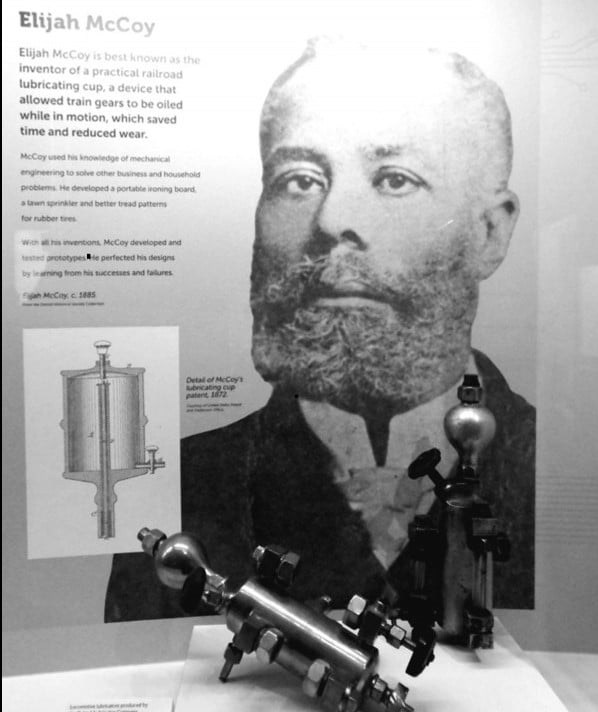Arthur Zang (1988-Present)
What He Invented: The Cardiopad.
Why It’s Important: The 24 year-old Cameroonian engineer, has invented the Cardopad, a touch-screen medical tablet that enables heart examinations such as the electrocardiogram (ECG) to be performed at remote, rural locations while the results of the test are transferred wirelessly to specialists who can interpret them. The device spares African patients living in remote areas the trouble of having to travel to urban centers to seek medical examinations.
Jan Matzeliger (1852-1889)
What He Invented: A Shoe-Lasting Machine.
Why It’s Important: Marzeliger, who was from Suriname, invented a shoe-lasting machine that increased the availability of shoes and decreased the price of footwear. Matzeliger’s shoe-lasting machine increased shoe production tremendously. The result was the employment of more unskilled workers and the proliferation of low-cost, high-quality footwear for people around the world.
Otis Boykin (1920 -1982)
What He Invented: The Artificial Heart Pacemaker Control Unit.
Why It’s Important: Although there were variations to the pacemaker before Boykin’s invention, the modern-day pacemaker would not exist without his work.
Ludwick Marishane (1991-Present)
What He Invented: DryBath
Why It’s Important: At age 21 Ludwick Marishane developed a formula that people use to bathe without water. DryBath is a lotion that cleanses cheaply and easily — especially important for the 2.5 billion people worldwide who lack proper access to water and sanitation.
DryBath has the same effect as an antibacterial cleanser, but it’s odorless and creates a biodegradable film that cleans and moisturizes the skin. Five years later, it’s now available on the market. Marishane has since enrolled at the University of Cape Town in South Africa and was named the Global Student Entrepreneur of the Year in 2011.






This is great stuff – I love it!
Dr. Victor Lawrence from Ghana who has 20 patents involving DSL technology that makes you surf the Internet.